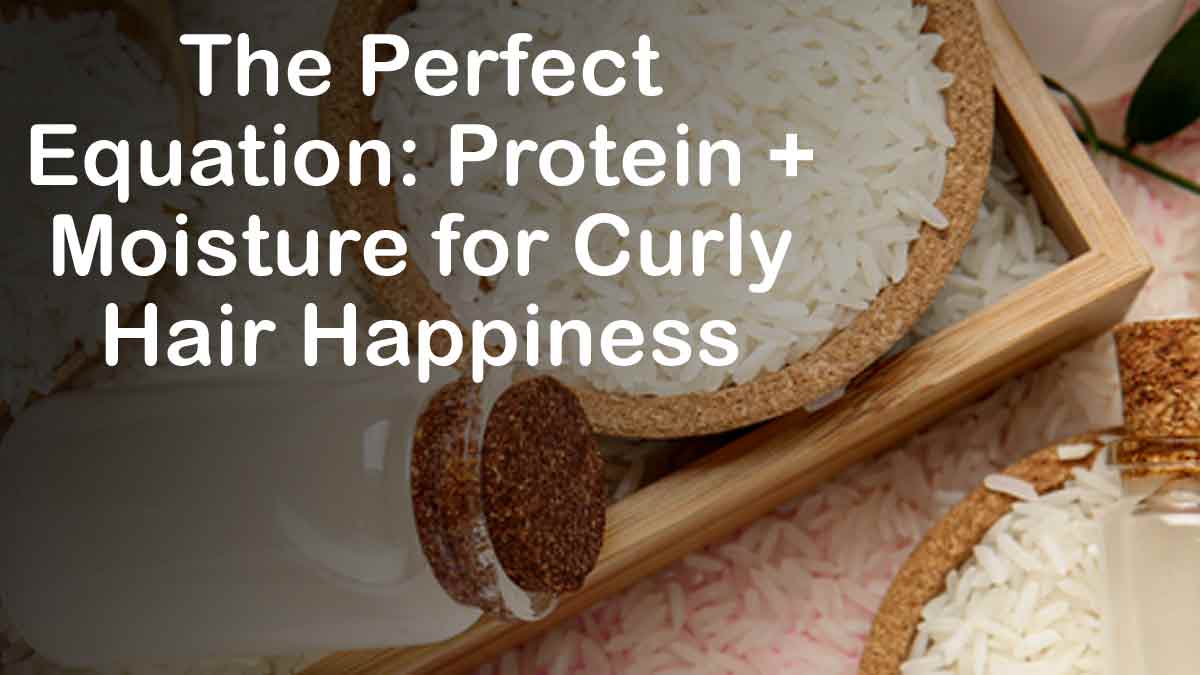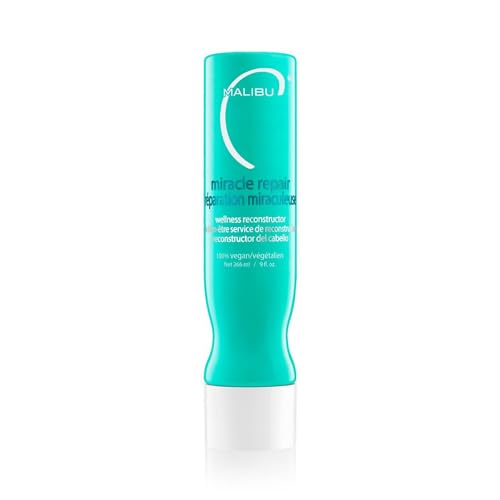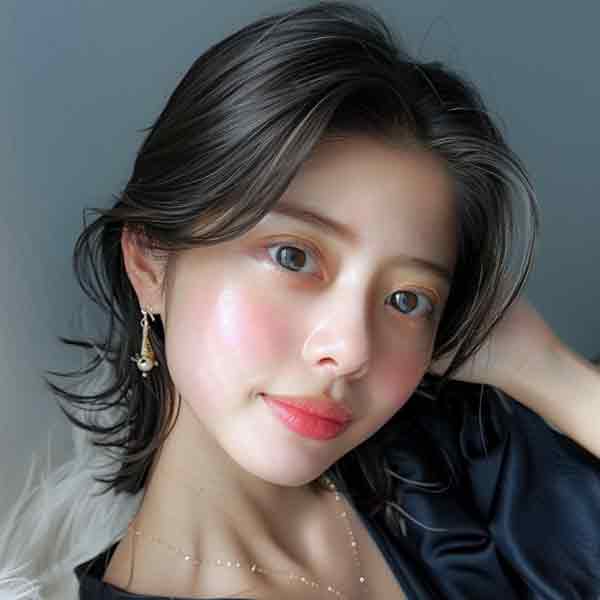Taking care of curly hair can be a challenging task, especially when it comes to understanding its unique needs. One common dilemma faced by individuals with curly hair is whether their hair requires protein or moisture. Both protein and moisture play crucial roles in maintaining healthy hair, but understanding the specific needs of your curls is essential.
In this article, we will explore the significance of protein and moisture for curly hair, signs that indicate whether your hair needs protein or moisture, effective strategies to incorporate these elements into your hair care routine, and recommend some popular hair products suitable for curly hair.
More from Glowing Gorgeous: Find out here the Best Silicone-Free Moisturizers And Why Do You Care
The Importance of Protein for Curly Hair
Protein is an essential component for maintaining strong and healthy hair. It contributes to the structural integrity of the hair strands, adds shine, and helps reduce breakage. Curly hair, in particular, is more prone to breakage due to its structural differences compared to straight hair. The unique shape of curly hair makes it more susceptible to damage and dehydration. Protein acts as a defense mechanism, providing hydration and reducing water loss from the hair strands. It also aids in temporarily repairing damaged areas by filling in gaps in the cuticle.
Expanding on the Role of Protein:
To further enhance the understanding of protein’s role, it’s important to delve into its functions and benefits. Protein acts as a building block for hair, contributing to its strength and elasticity. It helps repair damaged hair caused by various factors such as heat styling, chemical treatments, and environmental stressors. Protein treatments are particularly beneficial for individuals with weak or brittle hair. These treatments can be incorporated into the wash day routine or used as intensive treatments to restore the hair’s health and vitality.
Choosing the Right Protein Treatment:
When selecting protein treatments for curly hair, it’s essential to consider the ingredients and their sources. Many products advertise themselves as protein-rich or strengthening, but it’s crucial to check the ingredients list for specific proteins. For those following a vegan haircare regimen, plant-derived proteins are preferable. Some common plant-derived proteins include:
- Hydrolyzed vegetable protein: This protein is derived from plants and is known for its ability to strengthen and nourish hair strands.
- Oat flour: Oat protein is derived from oats and provides moisture and strength to the hair.
- Soy: Hydrolyzed soy protein is an excellent option for plant-based protein treatments as it helps repair and fortify the hair.
- Vegetable amino acids: These amino acids are derived from plants and contribute to the overall health and vitality of the hair.
- Wheat protein: Hydrolyzed wheat protein is known for its ability to improve hair texture and strength.
It’s important to note that certain proteins, such as keratin and collagen, are often derived from animal sources. If you prefer vegan options, ensure to look for plant-based alternatives.
Signs Indicating the Need for Protein:
Recognizing the signs that your hair requires protein can help you address its specific needs more effectively. Weak or brittle hair and excessive hair loss are warning signs that protein may be lacking. Damaged hair resulting from heat styling, chemical treatments, or bleaching is particularly prone to protein deficiency. These processes can strip away the hair’s protective layers, leading to moisture loss and protein depletion. If you notice these signs, incorporating protein treatments into your hair care routine can help replenish and strengthen your hair strands.
Strategies for Incorporating Protein Treatments:
To ensure optimal results, it’s important to establish a consistent routine for protein treatments. Adding a protein treatment to your regular wash day routine or using it as an intensive treatment can help restore your hair’s health. Alternating between deep conditioning treatments and protein treatments can provide a balanced approach to hair care. Additionally, incorporating a rice water rinse, known for its protein content, can be an effective and natural way to infuse protein into your hair strands.
The Role of Moisture for Curly Hair:
While protein is crucial for maintaining hair strength, moisture is equally important, especially for curly hair. Curly hair has a unique structure that makes it more challenging for sebum, the hair’s natural oil, to travel from the roots to the ends. Consequently, individuals with curly hair tend to have drier hair and scalp compared to those with straight hair. Moisture plays a vital role in retaining hair elasticity, preventing breakage, and combating common issues like split ends, frizz, and dullness.
Expanding on the Role of Moisture:
Moisture acts as a lubricant for the hair strands, keeping them flexible, soft, and resistant to damage. It helps to maintain the hair’s natural elasticity, allowing the curls to bounce back and reduce the risk of breakage. Curly hair often lacks moisture due to its texture and porosity, making it crucial to prioritize moisture in your hair care routine. Conditioning frequently is an essential step to infuse moisture into your curls. Look for conditioners specifically formulated for curly hair, as they often contain ingredients that provide intense hydration and nourishment.
Using sulfate-free shampoos is another important aspect of maintaining moisture in curly hair. Sulfates, such as sodium lauryl sulfate and ammonium lauryl sulfate, are harsh cleansing agents that can strip the hair of its natural oils, leaving it dry and prone to breakage. Opting for sulfate-free shampoos helps retain the hair’s natural moisture balance and keeps the curls hydrated.
Hair oils are also valuable allies in the quest for moisture retention. They create a barrier on the hair strands, sealing in moisture and preventing excessive water loss. Look for oils such as argan oil, jojoba oil, coconut oil, and avocado oil, which are known for their moisturizing properties. These oils can be applied to damp or dry hair, focusing on the mid-lengths and ends where moisture tends to escape most.
More from Glowing Gorgeous: Find out here Hyram’s Recommended Face Sunscreens For The Summer
Conclusion:
Understanding the needs of your curly hair is crucial for maintaining its health and appearance. Both protein and moisture play vital roles in ensuring that your curls remain strong, hydrated, and resistant to breakage. Protein treatments aid in repairing damaged areas and adding strength to the hair, while moisture treatments help retain elasticity and combat dryness. By recognizing the signs that indicate whether your hair needs protein or moisture and implementing appropriate strategies into your hair care routine, you can achieve healthy and vibrant curls.
Recommended Products for Curly Hair:
-
- Protein Treatments
The Malibu C Miracle Repair Wellness Hair Reconstructor is a HG for damaged hair. With its advanced formula, it repairs and restores hair health, leaving it strong, shiny, and revitalized. This lightweight, non-greasy reconstructor is color-safe and cruelty-free, making it a top choice for hair transformation.
Briogeo Don’t Despair, Repair! Deep Conditioning Mask: This mask contains plant-derived proteins like hydrolyzed quinoa and keratin to strengthen and repair damaged hair.
Mielle Organics Babassu Oil & Mint Deep Conditioner: Infused with protein-rich ingredients such as babassu oil and amino acids, this conditioner helps restore and hydrate curly hair.
- Moisturizing Products:
DevaCurl One Condition Original Daily Cream Conditioner: Formulated specifically for curly hair, this conditioner deeply hydrates and detangles, leaving the curls soft and manageable.
Moroccanoil Treatment: A lightweight hair oil enriched with argan oil, it nourishes and moisturizes curly hair, leaving it smooth, shiny, and frizz-free.
SheaMoisture Coconut & Hibiscus Curl & Shine Shampoo: This sulfate-free shampoo gently cleanses while providing moisture and enhancing curl definition.
Remember to adjust your hair care routine based on your individual hair needs and preferences. Experimenting with different products and techniques will help you find the perfect balance of protein and moisture for your curly hair.
Frequently Asked Questions about Curly Hair Care:
-
How do I determine whether my curly hair needs protein or moisture?
The best way to determine your hair’s needs is by assessing its condition. If your hair feels weak, brittle, or prone to breakage, it may require protein. On the other hand, if your hair is dry, frizzy, or lacks elasticity, it could be in need of moisture.
-
Can I use both protein and moisture treatments in my hair care routine?
Absolutely! It’s important to strike a balance between protein and moisture for optimal hair health. Incorporating both types of treatments into your routine can help address the specific needs of your curls and maintain a healthy balance.
-
How often should I use protein treatments for my curly hair?
The frequency of protein treatments will depend on the condition of your hair. If your hair is severely damaged, you may benefit from more frequent treatments initially. However, as your hair improves, you can scale back to once every one to two weeks or as needed.
-
Are there any natural remedies I can use to provide protein or moisture to my curly hair?
Yes, there are natural options you can try. For protein, you can use a homemade yogurt mask or an egg treatment. For moisture, you can use aloe vera gel or coconut oil. Keep in mind that these remedies may not provide the same concentrated benefits as commercial products.
-
Can I overdo protein or moisture treatments for my curly hair?
Yes, it’s possible to overdo protein or moisture treatments, which can lead to imbalances and potential damage. It’s important to listen to your hair and adjust your treatments accordingly. If your hair starts to feel stiff or brittle, reduce the frequency of protein treatments. If your hair feels weighed down or excessively greasy, cut back on moisture treatments.


 Malibu C Miracle Repair Hair Reconstructor (9 oz) - Nourishing Hair Repair...
Malibu C Miracle Repair Hair Reconstructor (9 oz) - Nourishing Hair Repair... Briogeo Don't Despair Repair Hair Mask, Deep Conditioner for Dry Damaged or...
Briogeo Don't Despair Repair Hair Mask, Deep Conditioner for Dry Damaged or... Mielle Organics Babassu & Mint Deep Conditioner with Protein, Moisturizing &...
Mielle Organics Babassu & Mint Deep Conditioner with Protein, Moisturizing &... DevaCurl One Condition Original Rich Cream Conditioner, Soft Lemongrass, 32 fl....
DevaCurl One Condition Original Rich Cream Conditioner, Soft Lemongrass, 32 fl.... Moroccanoil Treatment, 3.4 Fl. Oz.
Moroccanoil Treatment, 3.4 Fl. Oz. SheaMoisture Curl and Shine Coconut Shampoo Coconut and Hibiscus for Curly Hair...
SheaMoisture Curl and Shine Coconut Shampoo Coconut and Hibiscus for Curly Hair...
Comments